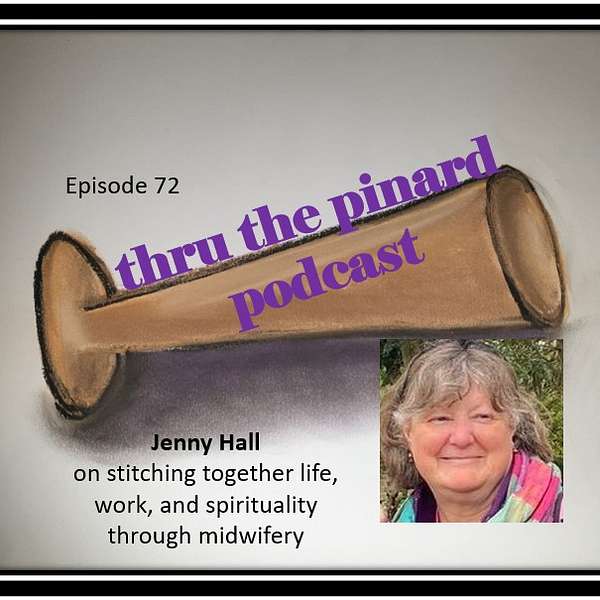
thru the pinard Podcast
a conversational podcast with @Academic_Liz with midwives & other birth professionals about their studies/ research & how it's changing our practice globally - email thruthepinard@gmail.com
thru the pinard Podcast
Ep 72 Jenny Hall on stitching together life, work, and spirituality through midwifery
message me: what did you take away from this episode?
Ep 72 (ibit.ly/Re5V) Tomasina Stacey Evolution of a Midwife into a Maternal Health Research Leader on Stillbirth
@PhDMidwives #MidTwitter #research #midwifery
research - https://www.researchgate.net/profile/Jenny-Hall
Embark on a heartfelt odyssey with Dr. Jenny Hall, as she narrates her transformation from a nurse to a revered midwife, unveiling the layers of her career that began in the vibrant corridors of a London obstetrics ward in the early '80s. , Jenny recounts the evolution of midwifery practices and the personal milestones that mirror the progression of healthcare and education. Her tales of advocating for part-time work to balance the demands of motherhood with a flourishing career echo the sentiments of countless professionals striving for harmony in their lives.
As Jenny opens her heart about the trials and triumphs of nurturing both new life and budding midwives, we are reminded of the delicate dance between clinical precision and the holistic touch that defines exceptional care. She passionately shares her pursuit of a positive narrative in midwifery, while candidly discussing the necessity of continuous learning within the dynamic landscape of medical education. Her contribution to the field extends to the crafting of educational modules, aiming to preserve the time-honored tradition of midwifery within our rapidly modernizing world.
Finally, Jenny's reflections on the blending of creativity with professional rigor offer a profound perspective on coping with work-related stress. Through the communal art of quilting and the poignant Knitted Midwives Project, she illustrates how handcrafted expressions can serve as a powerful conduit for awareness and solidarity. Her story culminates in the heartfelt celebration of her academic achievements alongside her family, inspiring a sense of possibility for listeners to find their own equilibrium in the intersecting realms of career, personal fulfillment, and the ever-present call to mentorship and collaboration.
Do you know someone who should tell their story?
email me - thruthepodcast@gmail.com
The aim is for this to be a fortnightly podcast with extra episodes thrown in
This podcast can be found on various socials as @thruthepinardd and our website -https://thruthepinardpodcast.buzzsprout.com/ or ibit.ly/Re5V